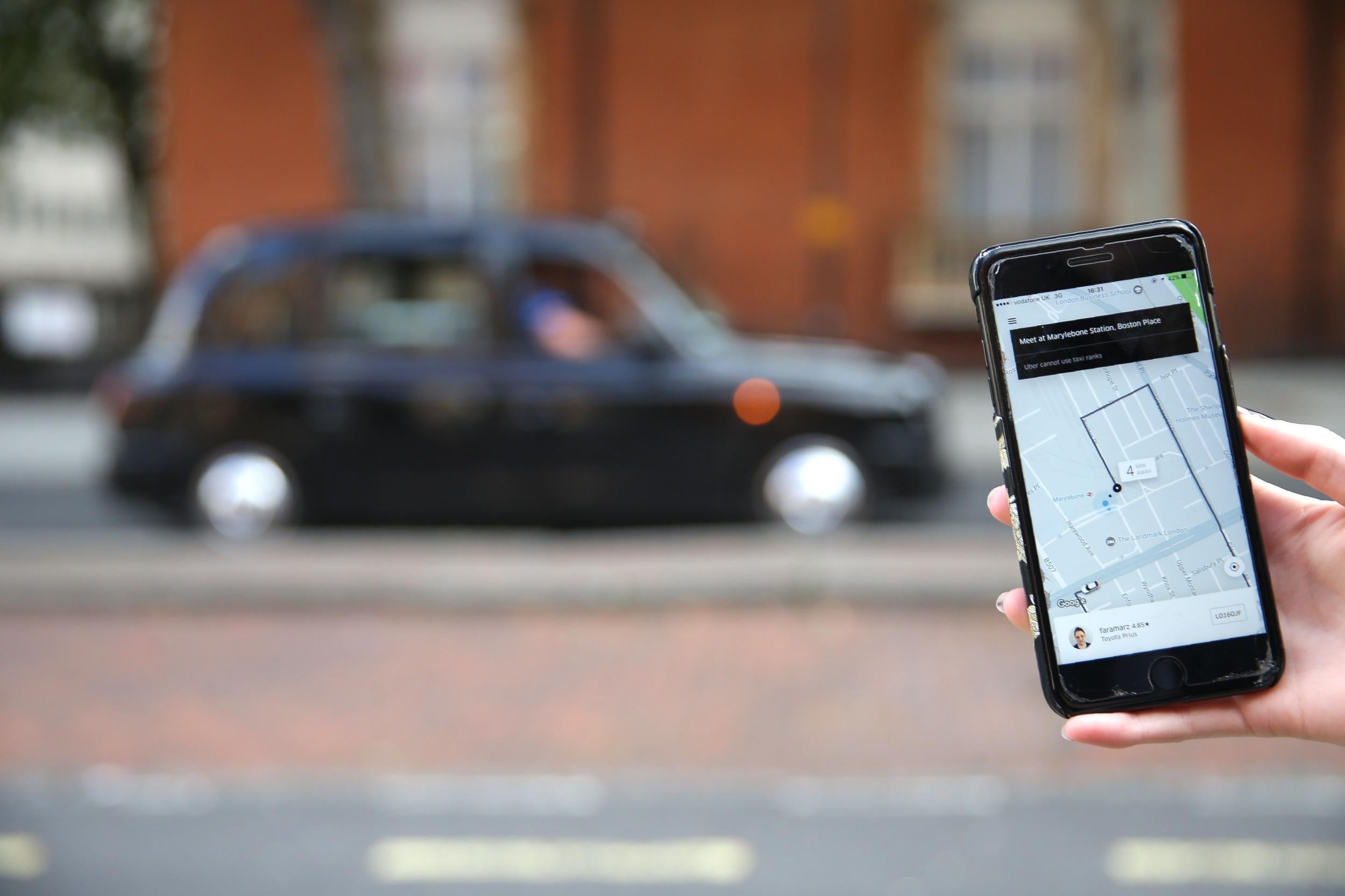Uber is not vanishing off London’s streets any time soon, but it has some serious growing up to do
The company needs to be trusted again and perhaps the only way it can do that is by proving that it is willing and able to pedantically comply with the rule of law

The battle is on and it’s anyone’s guess how long it will last. Uber on Friday announced that it had officially appealed Transport for London’s decision last month to scrap its licence to operate in the city.
For anyone who has even the vaguest idea of how dominant Uber is globally, and how critical London has become as a market, this will come as no surprise at all. An estimated 3.5 million people use Uber in London, and around 40,000 people are licenced to drive here. Uber needs London. And London at least thinks that it needs Uber just as much.
Take a look at the last three weeks. In the minutes after TfL broadcast its shock decision on 22 September, an online petition to save the ride-hailing behemoth in the capital was launched. It garnered hundreds of thousands of virtual signatures within hours and the figure has since ballooned to above 860,000.
As I scrambled to report on the most salient lines of the day, I glanced at a flurry of incomings texts. “Sign the petition”, one friend living in central London threatened, “or I’ll never go for dinner with you in east London again”.

As an ideological experiment, it was fascinating to watch.
You could almost see how conflicted some young, liberal professionals had become. Would their love of bashing capitalist corporates and calling out the Silicon Valley billionaires eclipse their appreciation of a company that has done so much to democratise transport? It was tricky, indeed. But the balance – for many – was tipped in favour of convenience.
And so Uber has become a lifeline for wealthy millennials, lazy city workers and pub-goers too tipsy to make the last train. In its short, turbulent life it’s entered our vocabulary as a verb as well as a noun. It’s a weekend staple. A emblem of our one-click, instant-delivery, cyber-dependent existence. Some have suggested that abolishing Uber would deal a sharp blow to the disabled, elderly and others who struggle to navigate the Tube. Even Theresa May – arguably preoccupied with heftier negotiations – has called TfL’s decision “disproportionate”.
It’s hard to image that Londoners will let the company vanish from their streets entirely. But there’s no doubt that a ton of work still needs to be done.
As I argued in a column this summer, the sharing economy, of which Uber is a poster child, relies on trust in order to function. Humans are not hardwired to care about the collective good. We’re inherently selfish and want to maximise our own resources. And that is why regulation is so tantamount.
Uber needs to be trusted again and perhaps the only way it can do that is by proving that it is willing and able to pedantically comply with the rule of law.
One of TfL’s concerns related to Uber’s use of secret software known as “greyball”, which the company apparently built to avoid regulators. It’s since insisted that such technology was never used or considered in the UK for the purposes cited by TfL, but it needs to move beyond even having to refute allegations around secret technology cloaked in funny code names.
It needs to distance itself from its maverick founder, Travis Kalanick, who quit in June amid messy accusations of fostering an “asshole” culture that tolerated sexism and misogyny. I think Uber’s new CEO, Dara Khosrowshahi, is the right man for the job, but it won’t be an easy ride.
Matthew Taylor, the author of a government review into employment culture and the sprawling gig economy, told me earlier this month that he thinks Uber had tried to become so indispensable that regulators would be unwilling to crack down on its practices. In that regard it has failed. Regulators have shown their teeth and it better not push its luck.
Uber needs to descend from its ivory tower and come to terms with the truths and requirements of the real communities in which it operates. It needs to understand that often those communities are cultural worlds away from its Silicon Valley home.
Kalanick, it seems, was slow to see the error of his ways. The price he paid was his leadership.
Uber may have earned a place in London’s heart, but the same could happen to it if it doesn’t get its act together. Believe me, plenty of players capable of winning us over are already nipping at Uber’s heels.
Join our commenting forum
Join thought-provoking conversations, follow other Independent readers and see their replies
Comments
Bookmark popover
Removed from bookmarks